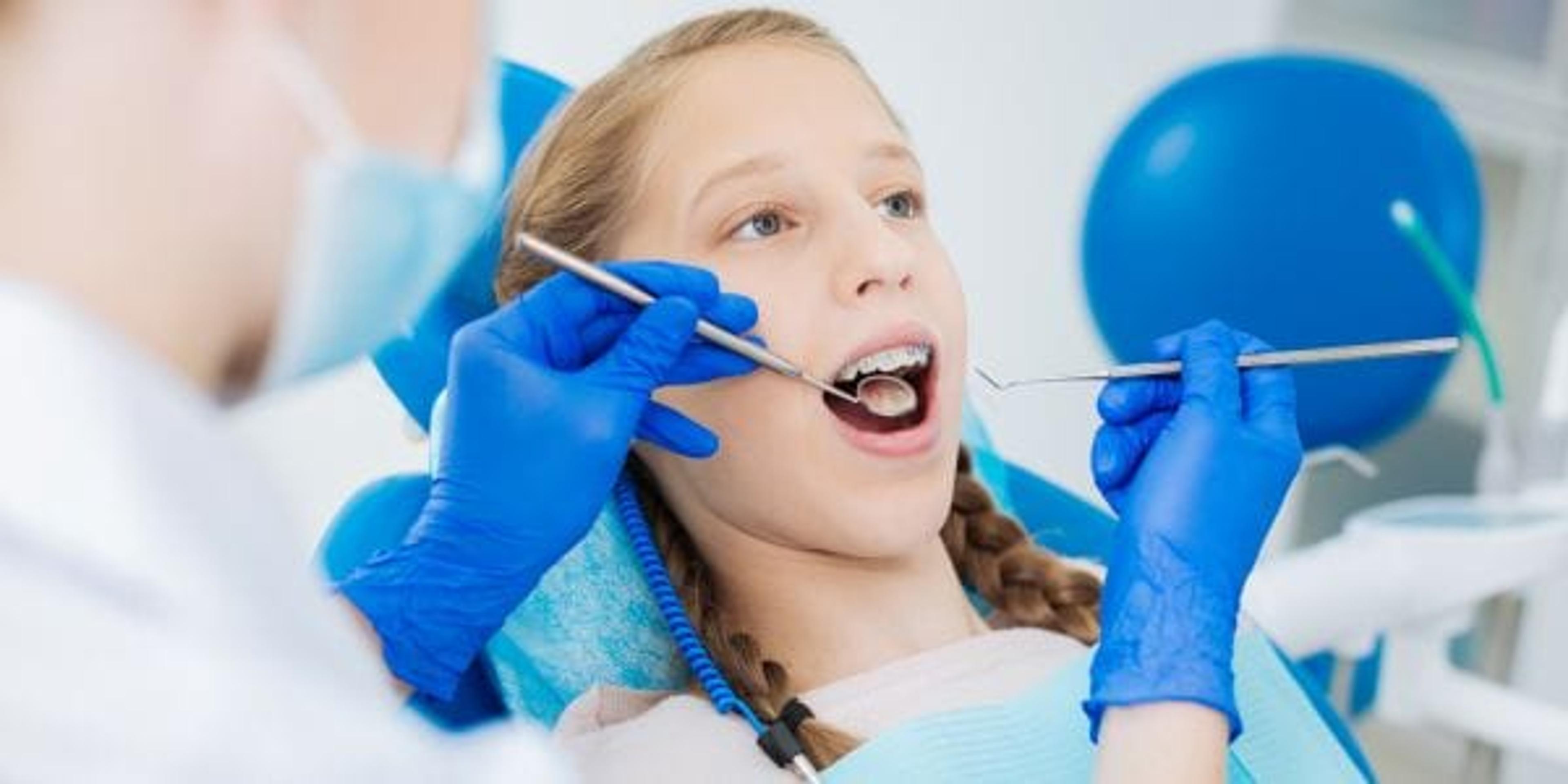How Early is Too Early for Braces?
Krystal Clark
| 2 min read

Oral hygiene should be a crucial part of every child’s life. During the first 10 years, the mouth undergoes several structural changes due to the sudden influx of teeth.
It’s important for parents to monitor children’s cleaning habits to ensure proper growth and maintenance. Home supervision plus regular dentist visits can help catch major problems before they start. But despite the best efforts, children may still develop conditions that require extensive care.
Some of the most common dental issues range from cavities and tooth decay to crooked or “buck” teeth. The latter is often corrected using orthodontic braces—a treatment typically reserved for individuals between the ages of 9 and 14, but can vary on a case-by-case basis.
If you or your regular dentist thinks your child might need braces, the American Association of Orthodontists recommends children have their first orthodontic evaluation by age seven. At that point, there’s a combination of baby and adult teeth present. A formal exam can help detect potential issues that may impact growth and warrant additional treatment. While some professionals take a wait-and-see approach, others prefer more immediate action.
Over the past decade, there’s been a noticeable increase in children receiving braces at a younger age. With the teeth and gums in such a malleable state, it may make certain conditions easier to correct. Severe cases of malocclusion (i.e. crossbite or underbite) could benefit from an earlier procedure. The window of opportunity ranges from 6 to 9 years old, when some baby teeth are still present.
In these scenarios, the operative word is “severe.” Children who get braces at a younger age may require a second phase of treatment down the line. That means more dental visits and an increase of potential out-of-pocket costs. Most dentists agree that it’s best to wait until the child is older and permanent teeth have set in.
Aside from hygiene, other factors that can affect dental health are:
- Genetics: Extra spacing, crowding teeth, or an underdeveloped jaw can all be inherited.
- Thumb-sucking: This can alter the roof of the mouth, teeth alignment and impede growth.
- Mouth-breathing: Excessive air reduces saliva production, which dries the mouth and prevents the washing away of bacteria.
- Poor nutrition: Foods high in sugar can cause cavities and overall tooth decay. Children should increase water intake, while limiting hard candies, juices, and pop.
If you found this post helpful, you might also enjoy:
Photo credit: yacobchuk





